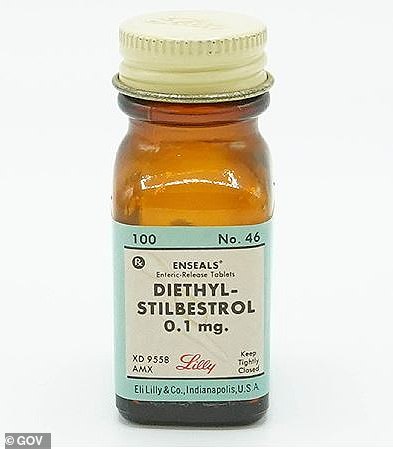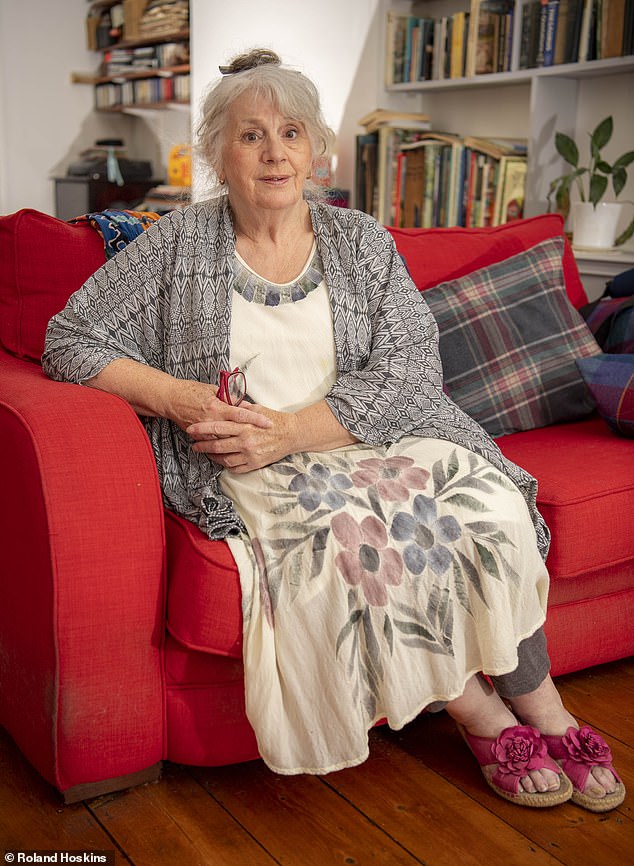- Do you believe YOU have been impacted? Email katherine.lawton@mailonline.co.uk
A common pregnancy drug prescribed to hundreds of thousands of expectant and new mothers has been dubbed a hidden thalidomide.
More than 100 women fear their health has been impacted due to diethylstilbestrol, know as DES, an ITV News investigation revealed.
Concerns have risen that thousands more women will come forward after some reported enduring severe pain and rare forms of cancer.
As many as 300,000 women were given the historic drug from the 1930s to 1973 to dry up breast milk and treat various other pregnancy complications.
The controversial prescription was a synthetic form of the hormone oestrogen.
Consultant Urogynecologist Dr Wael Agur, who has treated women exposed to the drug, previously told ITV Tonight: ‘This drug increases the risk of breast cancer in the women who took it.
‘People call it the hidden thalidomide, because it is there, we know it is there, but we don’t know the size of the problem.’
Do you believe YOU have been impacted? Email katherine.lawton@mailonline.co.uk

More than 100 women fear their health has been impacted due to diethylstilbestrol, know as DES

Jan Hall (pictured) called for an urgent enquiry into DES and its consequences after three generations of her family could have been linked to exposure of the drug
Three generations of a family believe their illnesses could be linked to exposure to DES.
Jan Hall, 75, of Bournemouth, suspects her mother Rita Milburn was harmed by the drug prescribed during three pregnancies. She tragically died from breast cancer aged just 32.
Since then, Jan has suffered a cervical cancer diagnosis in her 20s.
She told ITV that her daughters have also had abnormal smears, as well as pre-cancerous cells.
There are now calls to screen those who have been exposed, who are at higher risk of reproductive system cancers, the Mirror reported.
A Department of Health and Social Care spokesperson said: ‘Our sympathies are with anyone harmed by the historic use of DES.
‘We will continue to explore what support can be offered to those impacted by the use of it.’







